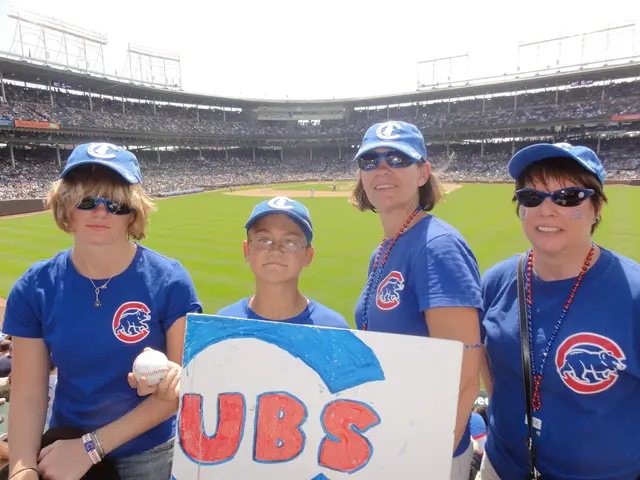Multitudes protest in Santiago, aiming to counter the "linguistic crisis" instigated by the Galician language.
Title: Galician Language Advocacy and Culture Thrive in Santiago de Compostela
3-minute Read: Thousands flocked to the bustling streets of Santiago de Compostela this weekend, marking Galician Literature Day as they championed the call for "A Galicia in Galician" and combated the alleged "linguistic emergency" following recent data on Galician language usage and proficiency.
This spirited demonstration, orchestrated by the platform We Want Galician, started at noon in the lively Alameda de Santiago, radiating with flags, spontaneous parades, and especially tambourines—symbols of the day's tribute to popular oral poetry and cantareiras, who have used verses as the timeless conduit of Galician identity.
The procession ventured beyond its typical route, snaking down Avenida de Figueroa, traversing Avenida Rodrigo de Padrón, Rúa de Fonseca, and culminating at Rúa do Franco before gathering in the Plaza de Obradoiro, where more than 5,000 protesters amassed.
Several collectives part of We Want Galician, including A Mesa pola Normalización Lingüística, political parties such as BNG, PSdeG, or Sumar, and trade unions like CIG or CCOO, made their presence felt in the demonstration.
A Similar Scene in A Pobra:
Parallel advocacy for the Galician language was evident in A Pobra as thousands marched against the Altri plant, with BNG leader Ana Pontón stating, "Respect the great agreement on language, the Linguistic Normalization Plan and agree on timelines and budget to implement it." She further urged, "Stop working against Galician and work in favor of the majority who want to speak their own language."
A Call for Consensus:
The President of the Xunta, Alfonso Rueda, seized the occasion to call for the broadest possible consensus in the Pact for Galician, advocating for shared goals and collective effort to overcome "red lines" and "priorities."
Efforts Beyond the 17th of May:
Meanwhile, the PSdeG Secretary General, José Ramón Gómez Besteiro, asserted that current linguistic efforts "are in a bad situation." He called for sustained political will, work, decision, and effort to ensure that the language isn't just celebrated on the 17th of May but is consistently used and advocated.
Santiago de Compostela presents a thriving cultural and linguistic melting pot with Galician and Spanish as the primary languages. Galician language learning remains accessible through the University of Santiago de Compostela's diverse course offerings for Galician language and literature[2].
The city's warm community encourages language learners to immerse themselves, with local markets, cultural events, and festivals offering real-life practice opportunities[2]. Galician cultural aspects, such as music, mythology, and folklore, are highlighted in the city's cultural centers and historical sites, emphasizing the language's significance[4].
Public support for the Galician language is evident in annual holidays and events, such as Día das Letras Galegas, where the language and cultural heritage of Galicia are celebrated[4]. These events foster unity and empowerment among Galician speakers, driving efforts to preserve and promote this essential aspect of Galician identity.
In the whirlwind of Galician Literature Day, the politics of language took center stage, with demonstrators rallying for the average Galician speaker and urging the Xunta to address the concerning trends in Galician language usage and proficiency. The Galician language was not only celebrated on this day but also advocated for year-round, with the University of Santiago de Compostela offering learning opportunities and the city's vibrant community encouraging immersion.








